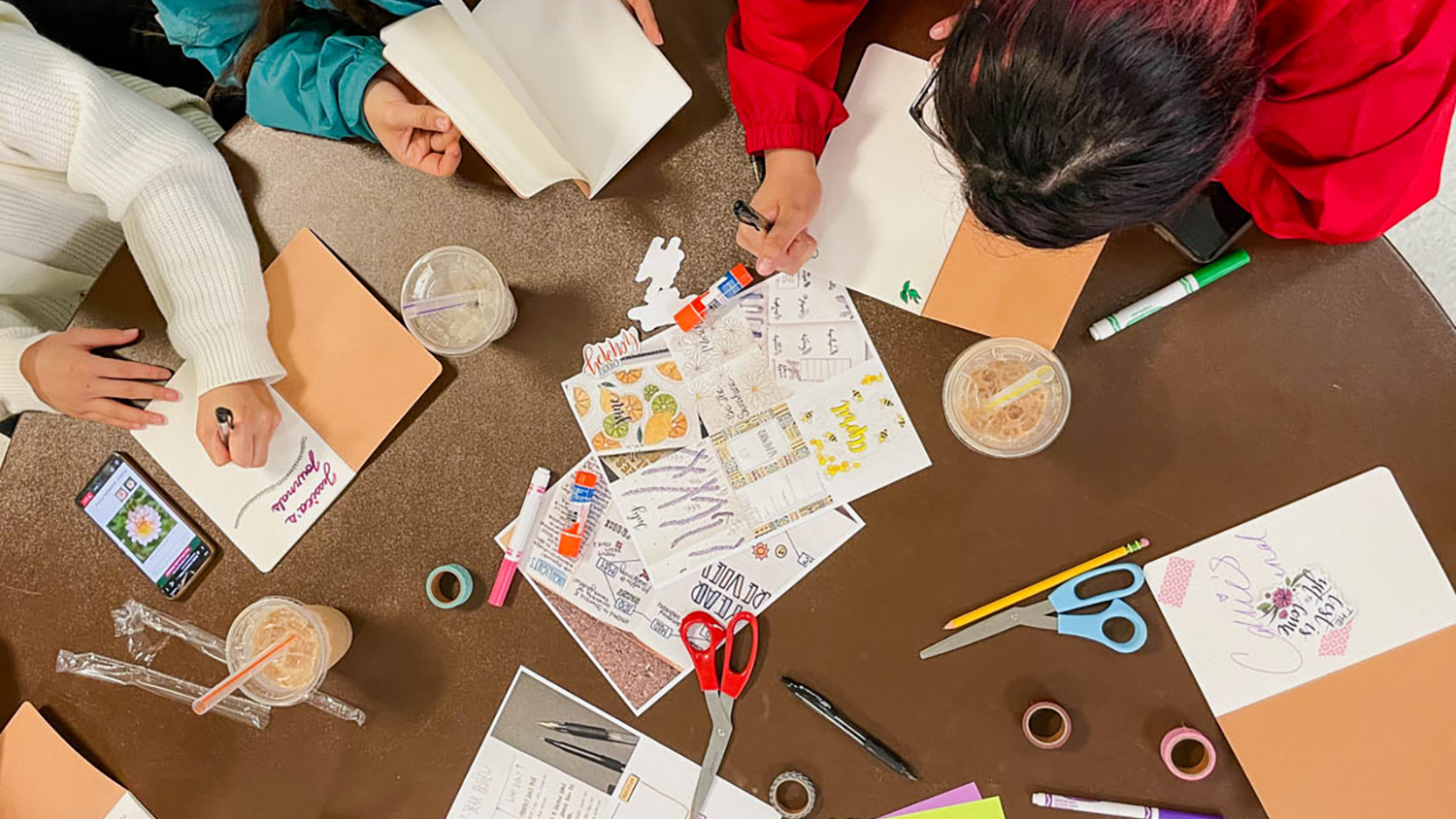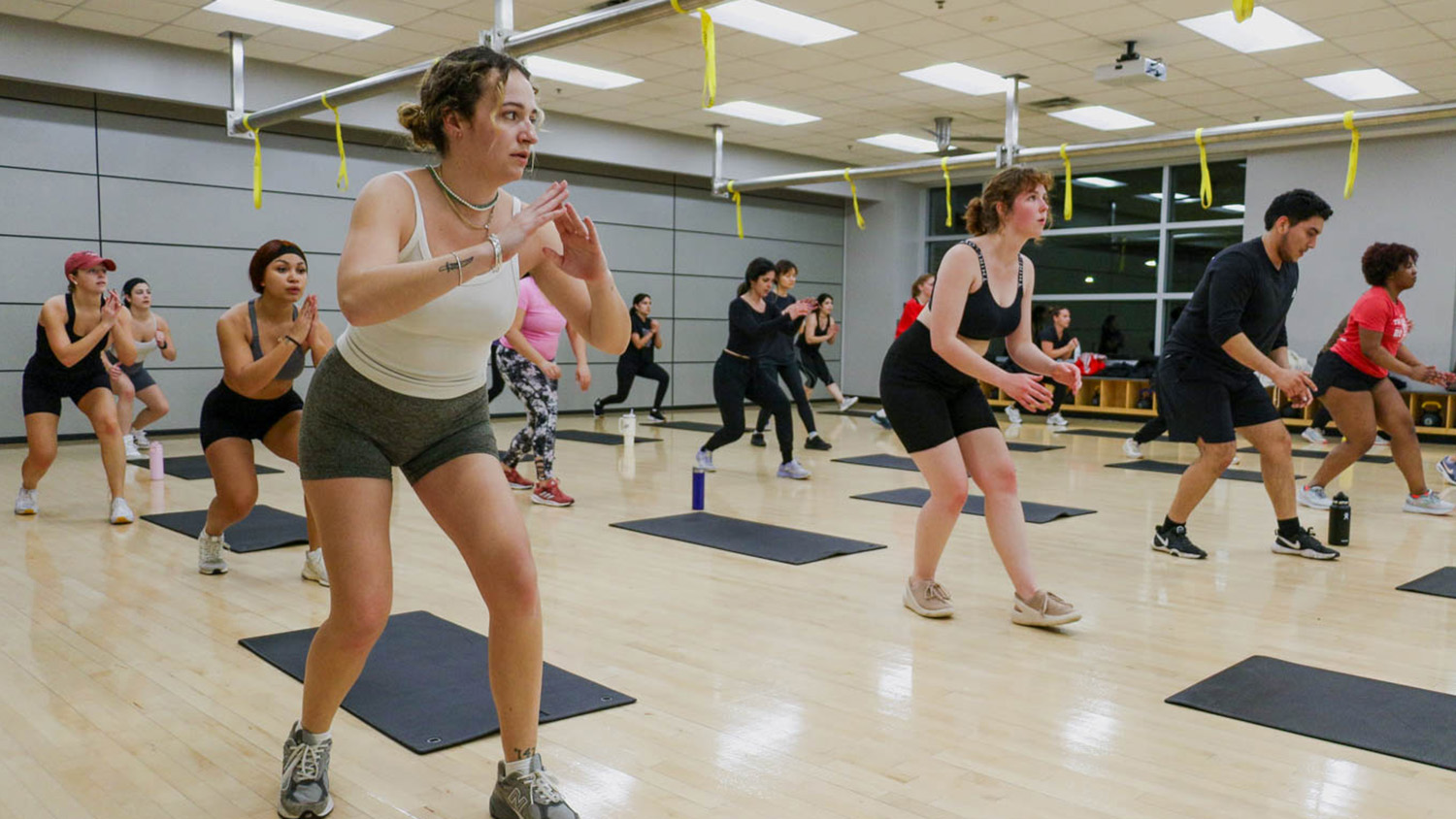With exam season around the corner, we’re outlining the top four study habits and tips for planning ahead that will help your goals fall into place as you stride toward the semester’s finish line.
Know Your Why
Before we begin, let’s set an active intention so we can better understand our goals with a clear mind. Set an intention with a confident, active voice, like “I express my thoughts with honesty,” “I grow from every experience,” and “I practice patience everyday”. Setting this intention helps us connect our daily activities with our long-term goals, so it only benefits us to be honest. If you’re heading into an intense meeting, or having trouble with starting a difficult conversation where conflict may be involved, Insight Timer offers a two-minute guided meditation that will help you identify your end result of the meeting.
This task might be a challenge, but it will contribute to growth and build resilience overtime. Building resilience is something we can all strive toward in the long-run!
Engage Your Growth Mindset
The attitude we have towards our commitments plays a big role in how we perform. A growth mindset emphasizes the process that brings you to your goal and believing you have the ability to learn and grow. Compare this to a fixed mindset where we might assign labels or all-or-nothing attitudes to difficult situations by saying, “there’s too much work and too little time, I’m completing an impossible task.”
Let’s bring in the context of our situation by stating: “This deadline is really challenging, but we are in peak task season where I can predict future assignments and improve for the future.”
Having a growth mindset can help us perform better academically and in other areas of our lives. Our education session, Everyday Tips for a Resilient Mind, highlights the importance of resiliency, a trait closely related to having a growth mindset, and gives you more tips on how to bounce back from setbacks and meet your stressors head-on. If you are part of a student organization, department or academic class that would like wellness infused into your group meeting, book a session today!
Study Skills
Finally, we did the prep-work to talk about our top five tips to build our studying skills and habits that encourage us to plan for the future.
- Make a list of all the tasks you have to do and rank them in order of importance.
- Sometimes the hardest part about studying can be finding a starting point. One strategy to combat this is to write down a list of your weekly tasks and rank them!
- Break up large tasks into smaller pieces, and find pockets of free time during your day to chip away at your to-do list.
- Similarly, it can feel like there is not enough time in our schedules to complete each task.
- Use active study strategies.
- Active study strategies ensure you are engaging with the material while you study, which helps to improve your memory. Some basic active study strategies include making concept maps or venn diagrams, doing practice problems or making quizzes for yourself, and studying with a group.
- Establish a working or studying routine.
- Recognize what gets you in the right mindset to study and do things to promote that thinking. Habits can take an average of 66 days or two months to become automatic, but know that by following a consistent routine, you are forming habits that can contribute to a positive lifestyle change.
More common traps to studying and how to avoid them can be found in this handout.
Academic Success and Coaching
If you find yourself struggling in any of your courses this semester or needing a little extra help, check out the resources offered by the Academic Success Center and Wellness and Recreation. The Academic Success Center has several tutoring services including 1:1 tutoring, drop-in tutoring and group tutoring. The Undergraduate Writing Center and Graduate Writing Center are also great tools that offer peer support. For help with general skills relating to note taking, studying and time management be sure to look into Academic Peer Mentoring.
Wellness coaching through Wellness and Recreation can also connect you with a coach who can help you nail down a plan for forming positive habits and understanding your priorities.
Research suggests that peer support is essential for learning, so whether you’re planning ahead for an important task at work or studying for an exam, find ways to connect with peers through coworking. We hope you take these skills with you today and transform them into strategies that best fit you.
- Categories:



